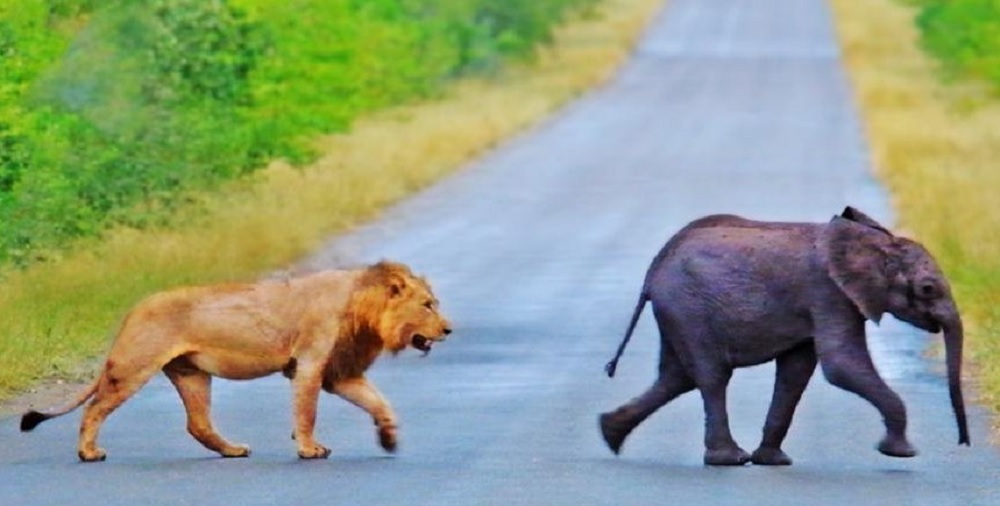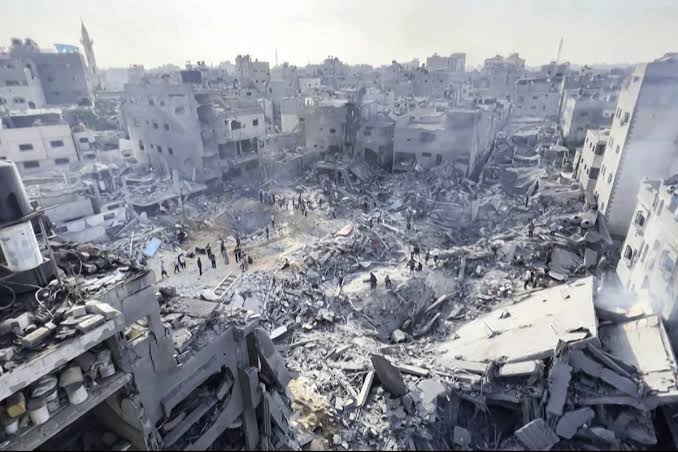News
BREAKING! Court stops increase in prices of DStv, Got subscription

By Ojomah Austin.
A Federal High Court in Abuja, on Monday, ordered the stoppage of the planned increase in DStv and GOtv subscription prices by Multichoice Nigeria Limited.
The Pay-TV operator, Multichoice Nigeria Limited, had last week announced another price increment across its DStv and GOtv packages effective May 1, 2024.
The company attributed the price increases to “rise in the cost of business operations” in Nigeria.
According to the notice signed by Multichoice CEO, John Ugbe, and sent to its subscribers and customers via email last week Wednesday, a copy of which was sighted by our Correspondent, the new prices for DStv packages are Premium package will now cost N37,000 monthly as against the current N29,500 subscription fee.
The price of the Compact+ bouquet has also increased to N25,000 from 19,800 monthly.
DStv said subscribers on its Compact bouquet will now pay N15,700 as against N12,500 they are currently paying, while those on the Confam package are to pay N9,300, compared to N7,400 currently being paid.
Under the new price regime, viewers on DStv Yanga bouquet will now be paying N5,100 for the monthly subscription, instead of the N4,200 currently being paid.
Padi subscribers will, from May 1, 2024, be paying N3,600 instead of the current N2,950 price.
HDPVR Access subscribers will pay N5,000 as against the N4,000 being paid now.
For GOtv users, Multichoice said customers on its Supa Plus package will now be paying N15,700, from the current price of N12,500. Its Supa bouquet will now go for N9,600 as opposed to the current N7,600 being charged.
GOtv Max subscription has also increased to N7,200 from N5,700 while its Jolli package will go for N4,850 from N3,950. Multichoice said its customers on the lowest GOtv package, Jinja, will be paying N3,300 monthly, as opposed to N2,700 they are currently paying.
Users of Smallie will now be paying N1,575 as against N1,300
Recall that Multichoice had increased its subscription fees twice in the past year.
News
Kenya: Lion kills 14-year-old girl, elephant kills man in separate incidents

A lion killed a 14-year-old girl outside Kenya’s capital Nairobi while an elephant killed a 54-year-old man in the central part of the country, the Kenya Wildlife Service (KWS) said this weekend.
The attack on the girl occurred on Saturday in a ranch to the south of Nairobi National Park.
The attack was witnessed by another teenager, who raised the alarm, the KWS said in a statement.
“KWS rangers and response teams were swiftly mobilized and traced bloodstains leading to the Mbagathi River, where the girl’s body was recovered with injuries on the lower back,” the conservation agency said in a statement.
“The lion was not sighted at the scene,” it added.
It said a trap had been set for the lion and teams deployed to comb the area, along with additional safety measures.
The KWS said a 54-year-old man had also been killed by an elephant in Kenya’s Nyeri County on Friday. The agency gave no further details about that incident.
“KWS conveys its heartfelt condolences to the bereaved families and continues to work closely with local law enforcement and communities to enhance the safety of people living near protected wildlife areas,” it said in the statement.
It called for more investment in “human-wildlife conflict mitigation”, including early warning systems and greater collaboration with affected communities.
In a statement to the BBC Paula Kahumbu, head of the WildlifeDirect conservation group, urged Kenya Wildlife Service to improve “risk assessments and ensure accurate, real-time communication of wildlife movement and behavior, especially in known high-risk areas such as Savannah Ranch,” where the girl was killed.
Last year, police in Kenya recovered the body of a man believed to have been attacked by a lion while he was riding a motorcycle near a national reserve in the south of the country.
The lion population was declining in Kenya just over a decade ago, primarily due to human-wildlife conflict. The government listed lions as endangered, with an estimated population of 2,000 in 2010. A more recent survey put the number at 2,489.
In 2023, 11 lions were speared to death in just one week — including one of Kenya’s oldest wild lions — by herders after the big cats killed their livestock.
Last year, the BBC reported CCTV footage captured the moment a lion snatched a Rottweiler dog from another home near Nairobi National Park
News
Celebrity boxing: Speed Darlington wants rematch after losing to Portable

By Kayode Sanni-Arewa
Nigerian singer Speed Darlington is calling for a rematch against Portable after losing to him in a celebrity boxing match.
Speed Darlington was knocked out in the second round, and he’s unhappy about the outcome.
In a video, he claimed Portable didn’t deserve the win and the prize money, saying he had plans to use the money to build a swimming pool for his community in Imo State.
Portable, I want a rematch. E dey pain me say you dey carry all that money dey go. E dey break my heart.
” I want a rematch. It’s so unfair. You have up to two experience before me and you fight. I never enter ring before. I did not come from poverty,” he said.
“You don’t deserve that money. E dey pain me. I want to build swimming pool for my villagers. I need a rematch, Portable”, he said.
According to Speed Darlington, Portable had an unfair advantage due to his experience, accusing him of using supernatural means to win the fight.
He also claimed he suffered a shoulder injury during the match despite not feeling tired.
Speed Darlington, who wants a rematch, said he needs 30 days to prepare better
News
Israel’s remote controlled bulldozers breaking ground in Gaza war

At first glance, there is nothing unusual about the bulky bulldozer turning up soil at a testing site in central Israel, but as it pulled closer it became clear: the driver’s cabin is eerily empty.
This is the Robdozer, a fortified engineering vehicle manned remotely, and in this case operated from a military expo halfway across the globe in Alabama.
Army engineers and military experts say that the Robdozer — the robotic version of Caterpillar’s D9 bulldozer — is the future of automated combat.
The Israeli military has used D9 for years to carry out frontline tasks like trowelling roads for advancing troops, removing rubble and flattening terrain.
But since war in Gaza broke out in October 2023 and later in Lebanon, the Israeli military has increasingly deployed this robotic version in a bid to enhance its field operations and reduce the risks to its troops.
“The idea is to eliminate the person from the cockpit of the dozer,” said Rani, whose team at the state-owned Israel Aerospace Industries developed the Robdozer.
An unmanned D9 bulldozer digs up a field during a demonstration to the press at the Israel Aerospace Industries (IAI) quarters near Tel Aviv on March 26, 2025. Israel’s increasing use of advanced technology on the battlefield, from air defence systems to a broad range of AI-driven intelligence tools, has been well-documented but also criticised for inaccuracies, lack of human oversight and potential violations of international law. (Photo by GIL COHEN-MAGEN / AFP)
During the Gaza war, the military has increasingly opted for the unmanned version, which can carry out a full range of tasks “even better than a human”, said Rani, using his first name only for security reasons.
While such vehicles and other systems are currently operated by humans, future versions could be autonomous, raising ethical and legal concerns over the unchartered future of warfare being shaped by the Israeli military in the Gaza war.
‘Changing the paradigm’
Israel’s increasing use of advanced technology on the battlefield, from air defence systems to a broad range of AI-driven intelligence tools, has been well-documented but also criticised for inaccuracies, lack of human oversight and potential violations of international law.
Analysts say the growing Israeli deployment of the Robdozer reflects broader global trends towards automation in heavy combat vehicles, like remote-controlled personnel carriers that operate much like drones.
An Israeli military official, who requested anonymity to discuss sensitive matters, told AFP that the army has been using “robotic tools for over a decade, but in very small numbers. Now it is being used in large-scale warfare”.
-

 News23 hours ago
News23 hours agoBLACK EASTER: Over 150 massacred in Plateau, Benue
-

 News19 hours ago
News19 hours agoDouble tragedy: Father, three children, maid killed in Osun road crash
-

 News19 hours ago
News19 hours agoSAD! SEC DG says “we can’t recover N1.3trn Nigerians lost to CBEX ponzi scheme”
-

 News17 hours ago
News17 hours agoNDLEA nabs bandits supplier with drugs concealed in private part(Photos)
-

 Metro23 hours ago
Metro23 hours agoShock as 2 naked lovers found dead in Kogi
-

 News23 hours ago
News23 hours agoIMF expresses concern over high poverty rate, food insecurity in Nigeria
-

 Economy24 hours ago
Economy24 hours agoVolvo announces termination of 800 U.S. workers, cites tariff, market decline
-

 Sports12 hours ago
Sports12 hours agoBREAKING! Arsenal hammer relegation Bound Ipswich 4-0


















